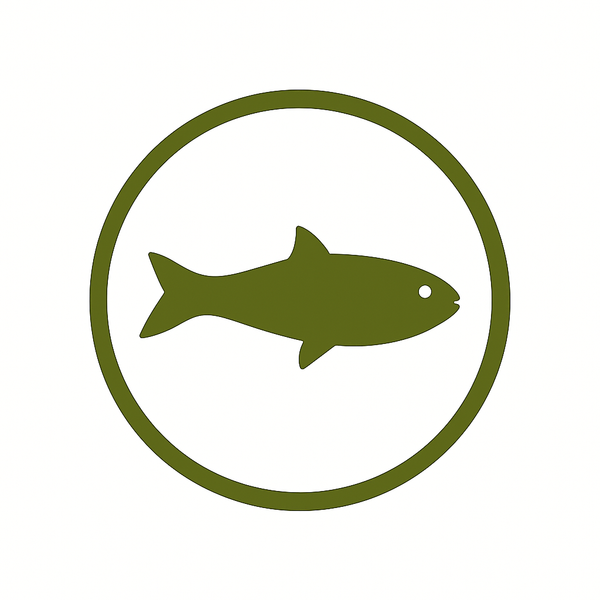AquariumVille
Pearl Weed Live Potted Carpeting Midground Foreground Aquarium Plant
Pearl Weed Live Potted Carpeting Midground Foreground Aquarium Plant
Couldn't load pickup availability
Pearlweed (Hemianthus micranthemoides) is a popular aquatic plant often used in freshwater aquariums due to its versatility and attractive appearance. Below is a detailed care guide:
Overview
• Scientific Name: Hemianthus micranthemoides
• Common Name: Pearlweed
• Difficulty: Easy to Moderate
• Growth Rate: Medium to Fast
• Placement: Foreground to Midground
Tank Requirements
• Tank Size: Suitable for tanks of 5 gallons and up.
• Lighting:
• Moderate to high light is required for compact and healthy growth.
• Low lighting may result in leggy growth as the plant stretches toward the light.
• Substrate:
• Nutrient-rich substrate preferred.
• Can be grown in sand or gravel with root tabs for added nutrients.
Water Parameters
• Temperature: 68–82°F (20–28°C)
• pH: 6.0–7.5
• Hardness: Soft to moderately hard water (3–10 dGH)
CO2 and Fertilization
• CO2:
• Optional but recommended for optimal growth and dense appearance.
• Without CO2, growth may slow, and the plant may lose its vibrant green color.
• Fertilizers:
• Liquid fertilizers containing macronutrients (NPK) and micronutrients (iron, magnesium) are beneficial.
Planting and Propagation
• Planting:
• Separate the stems and plant them individually with some spacing to allow for spreading.
• Can be planted as a carpet or bush, depending on trimming techniques.
• Propagation:
• Propagates via cutting.
• Cut healthy stems and replant them into the substrate for new growth.
Maintenance
• Trimming:
• Regular trimming encourages dense, bushy growth and prevents the plant from shading itself.
• Algae Control:
• Ensure proper balance of nutrients and lighting to prevent algae buildup on the leaves.
Tank Mates
Pearlweed is compatible with most peaceful fish, shrimp, and snails. It provides shelter and grazing areas for small aquatic creatures.
Key Tips
• Combine Pearlweed with other low-maintenance plants like Anubias or Java Moss for a diverse aquascape.
• Monitor for nutrient deficiencies (e.g., yellowing leaves may indicate lack of nitrogen or iron).
• Prune regularly to prevent it from overtaking other plants in the tank.
Share
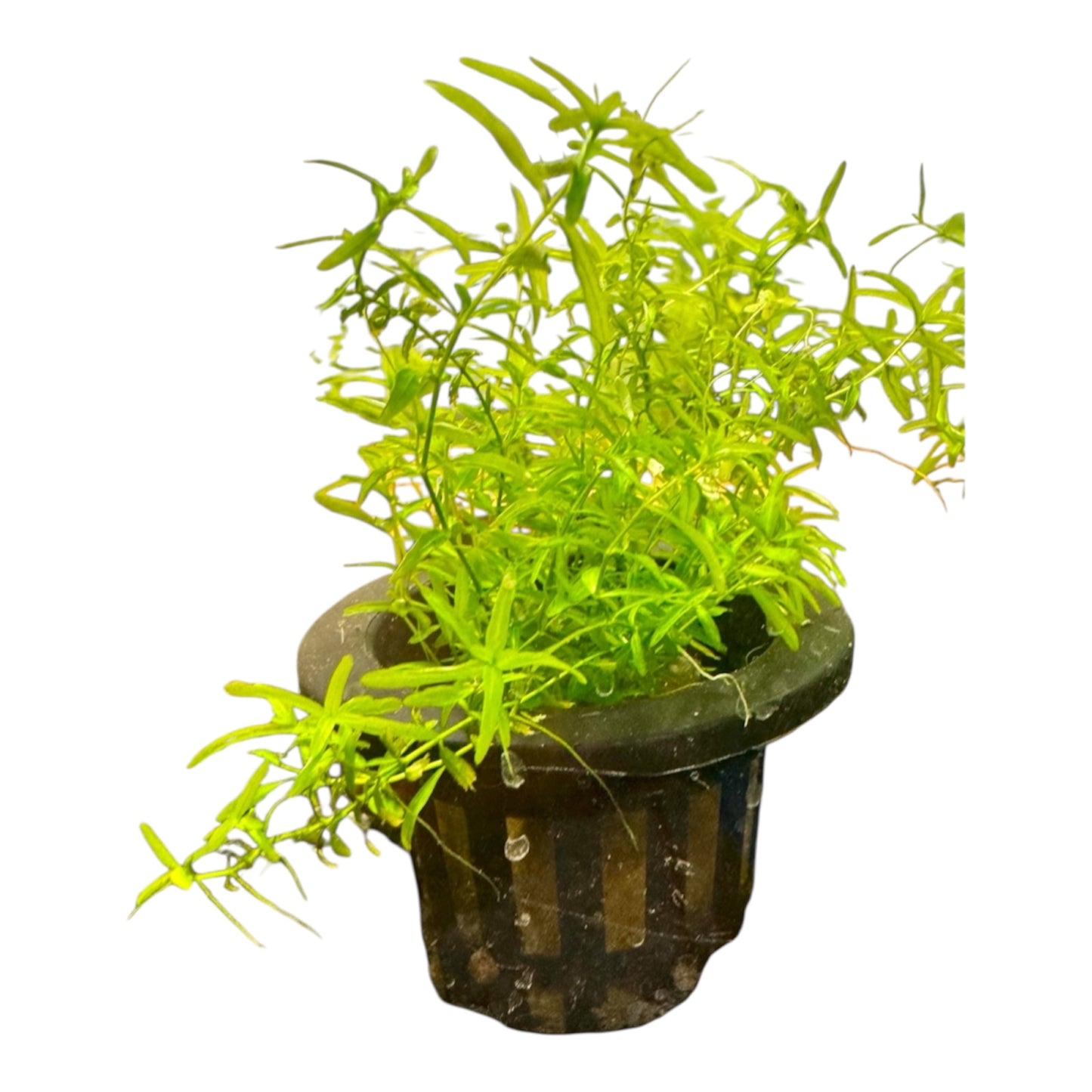
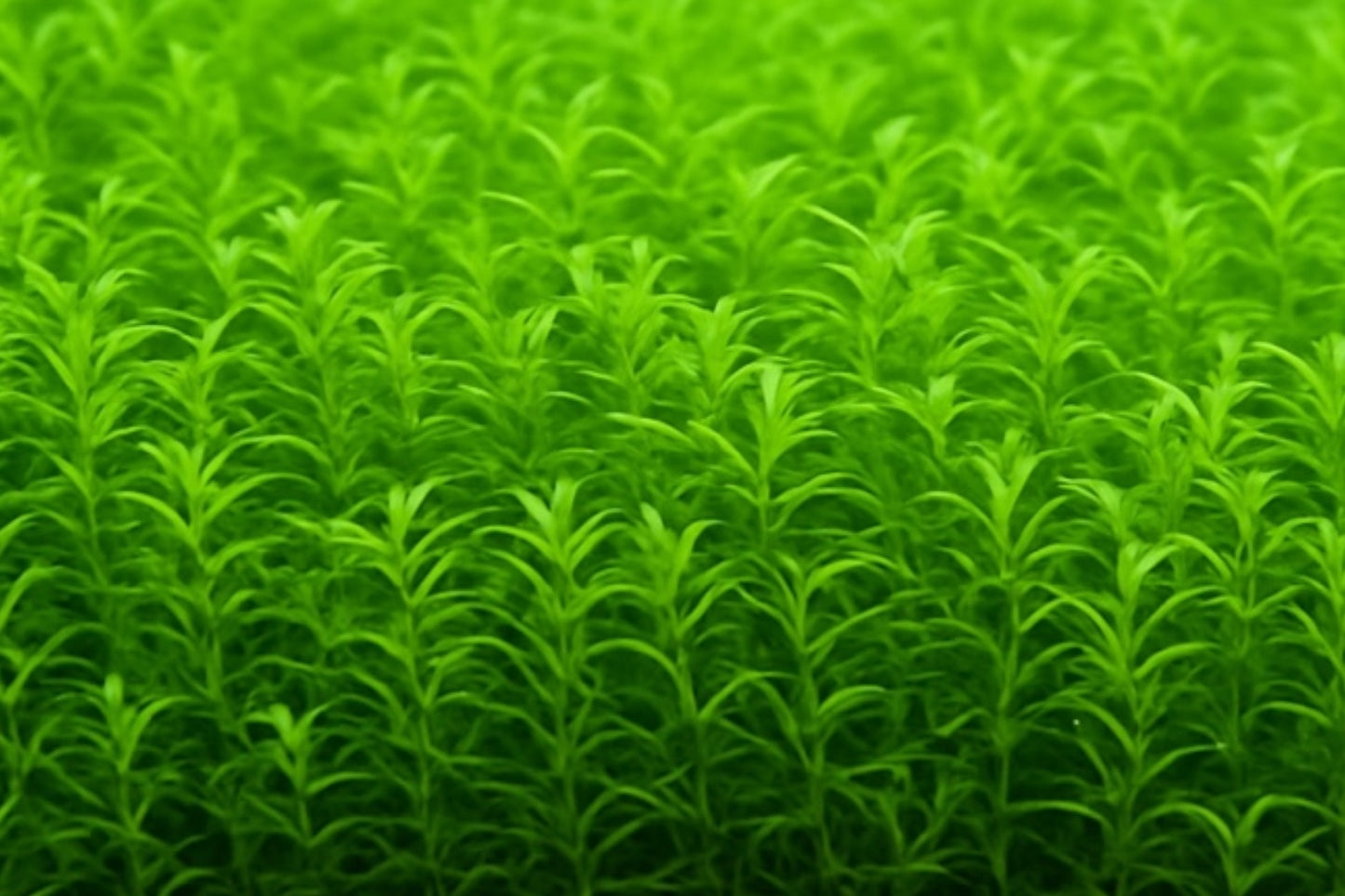
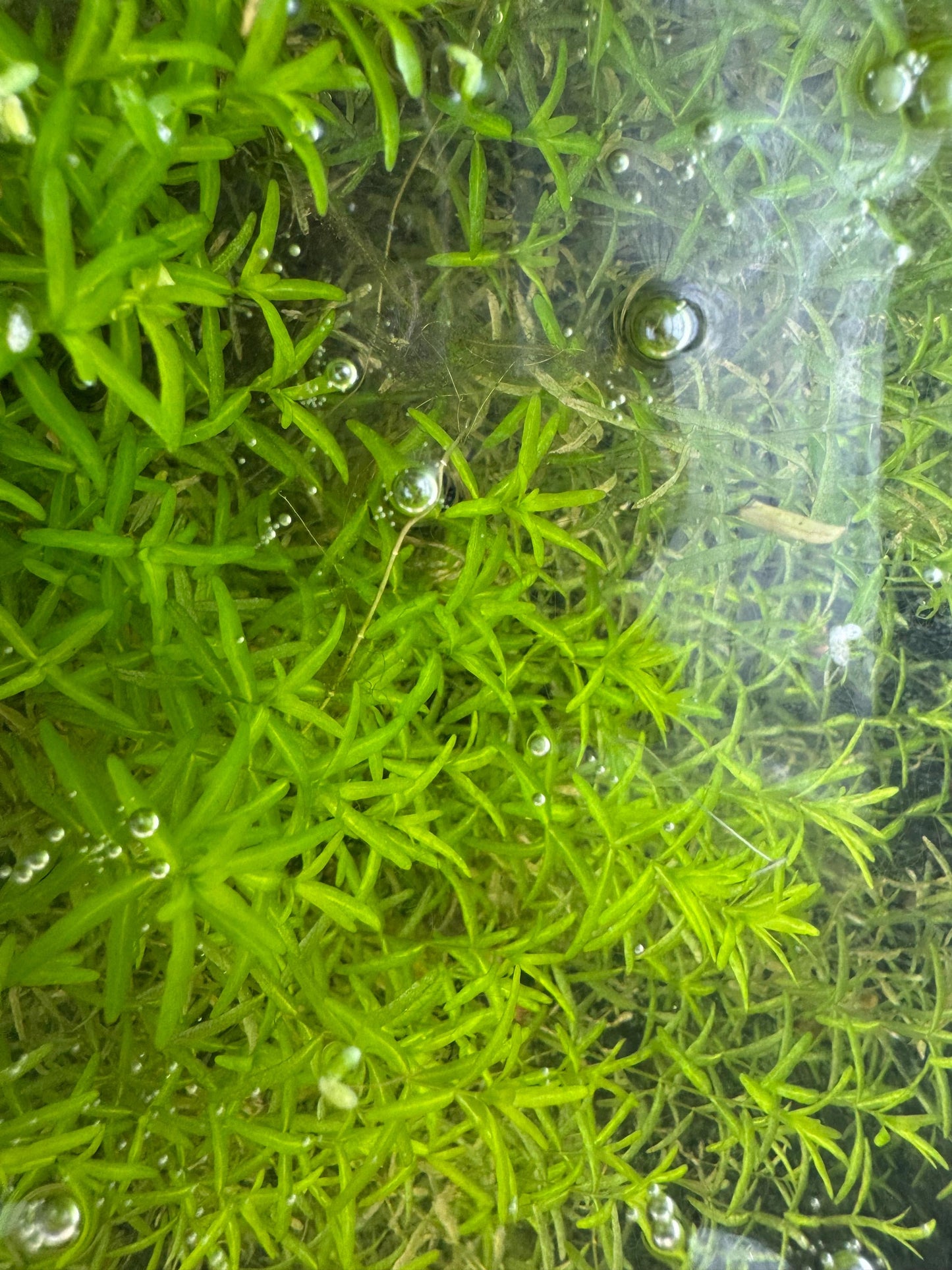
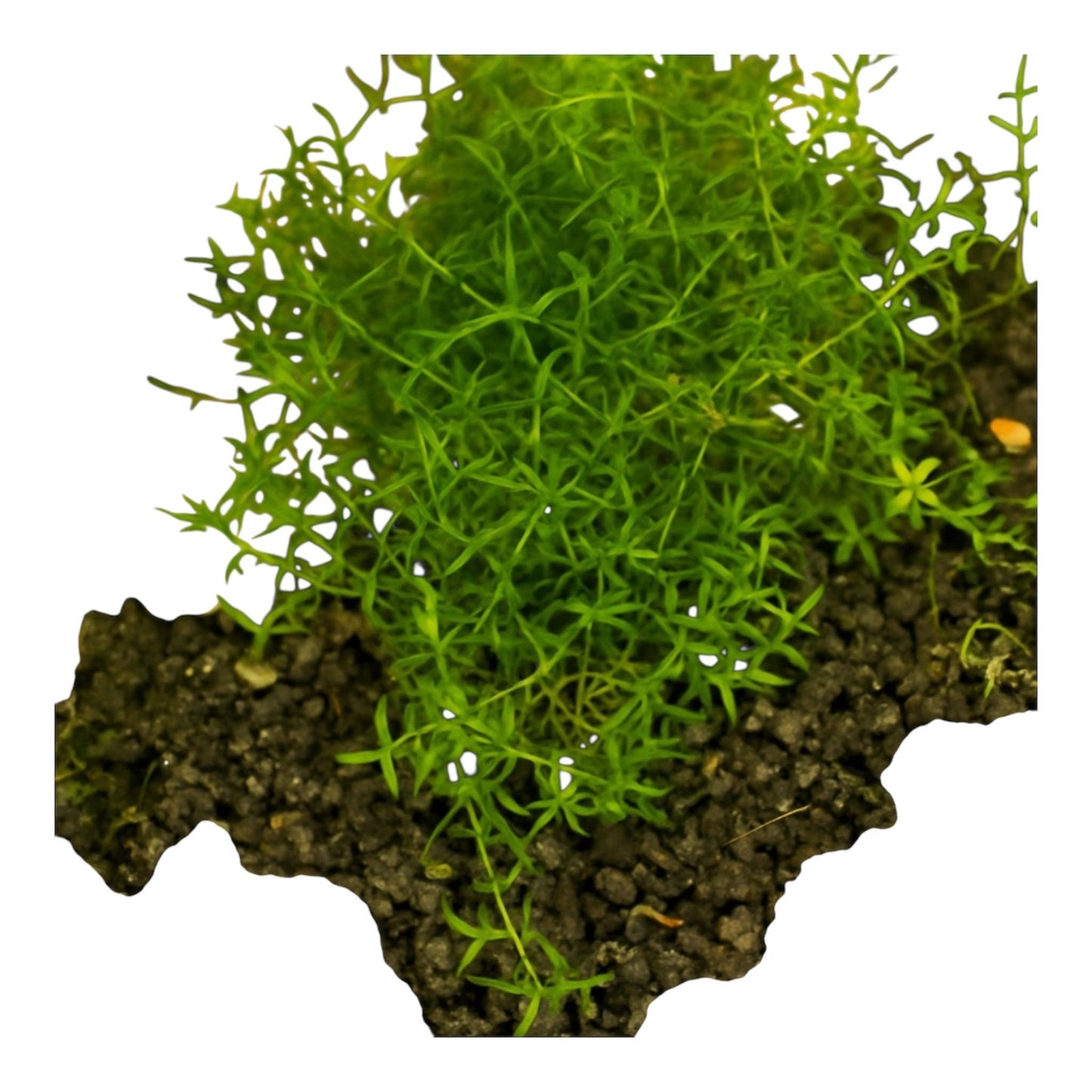
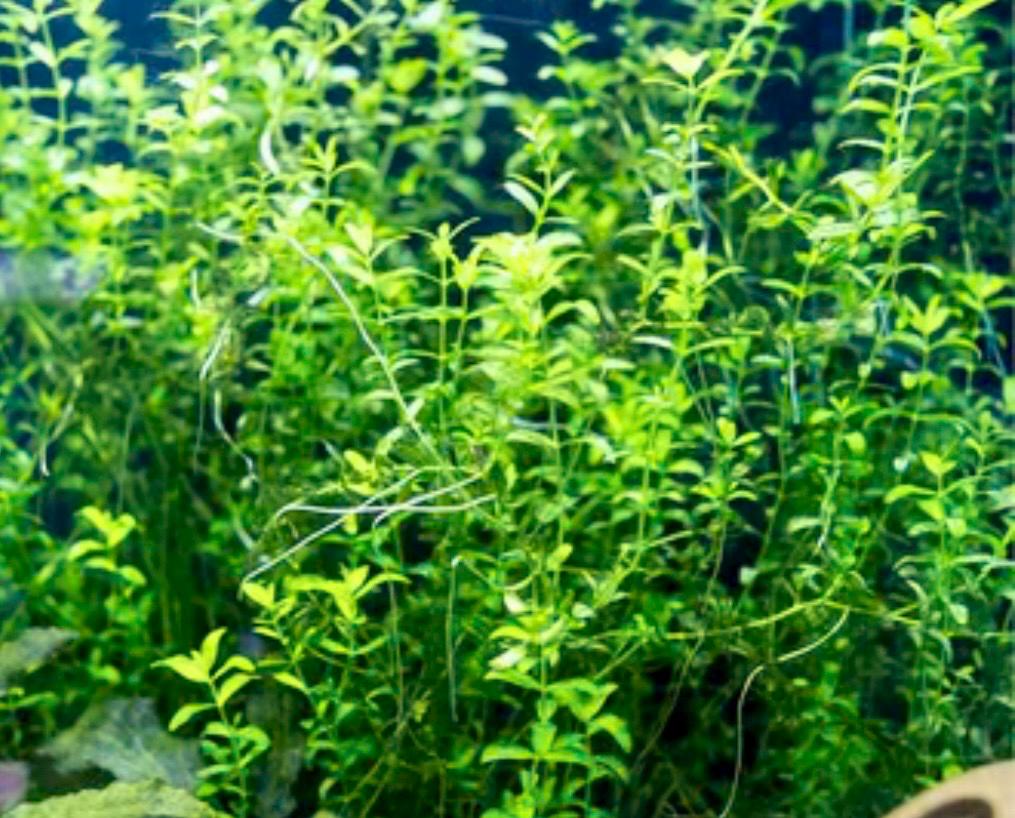
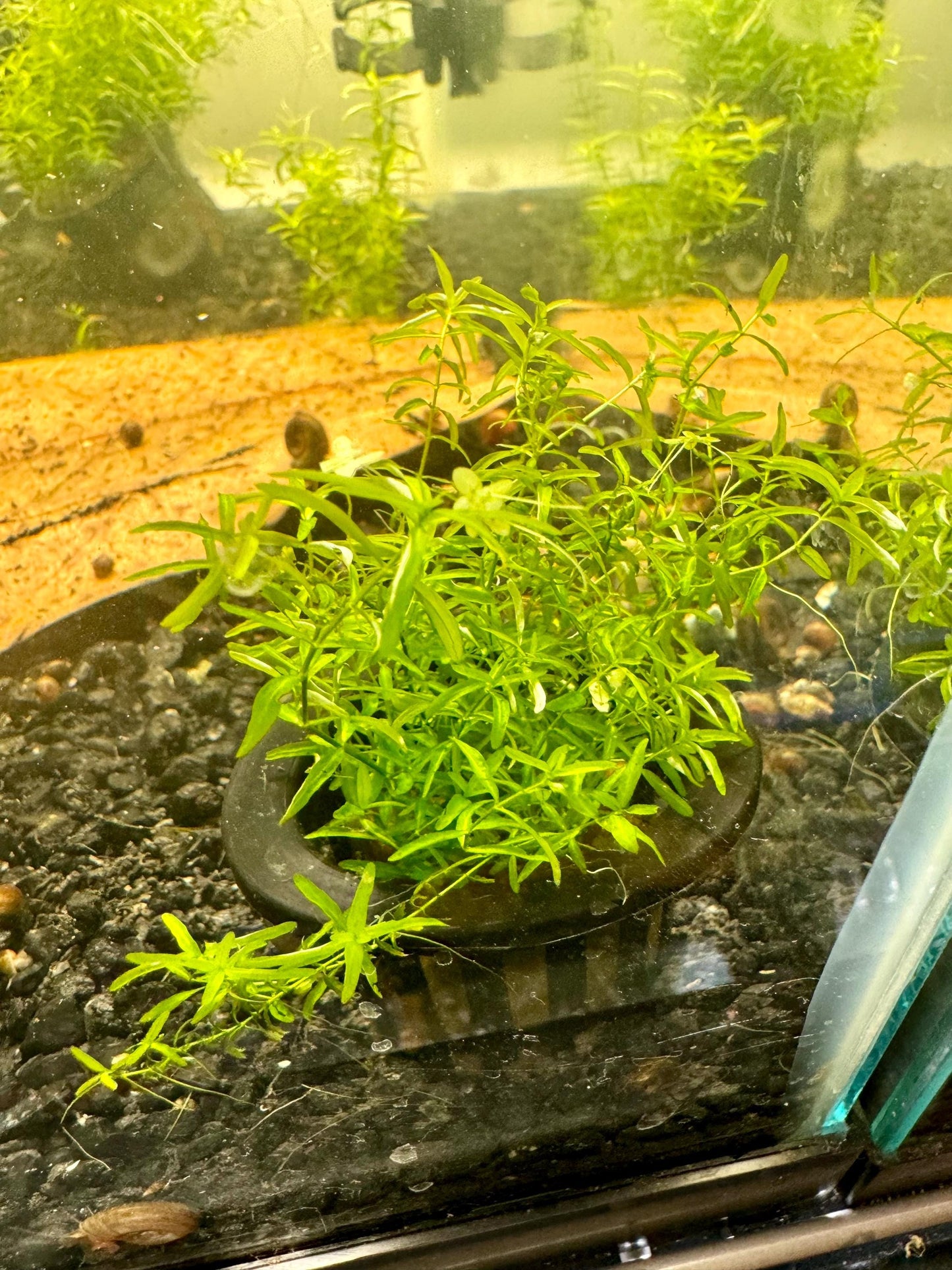
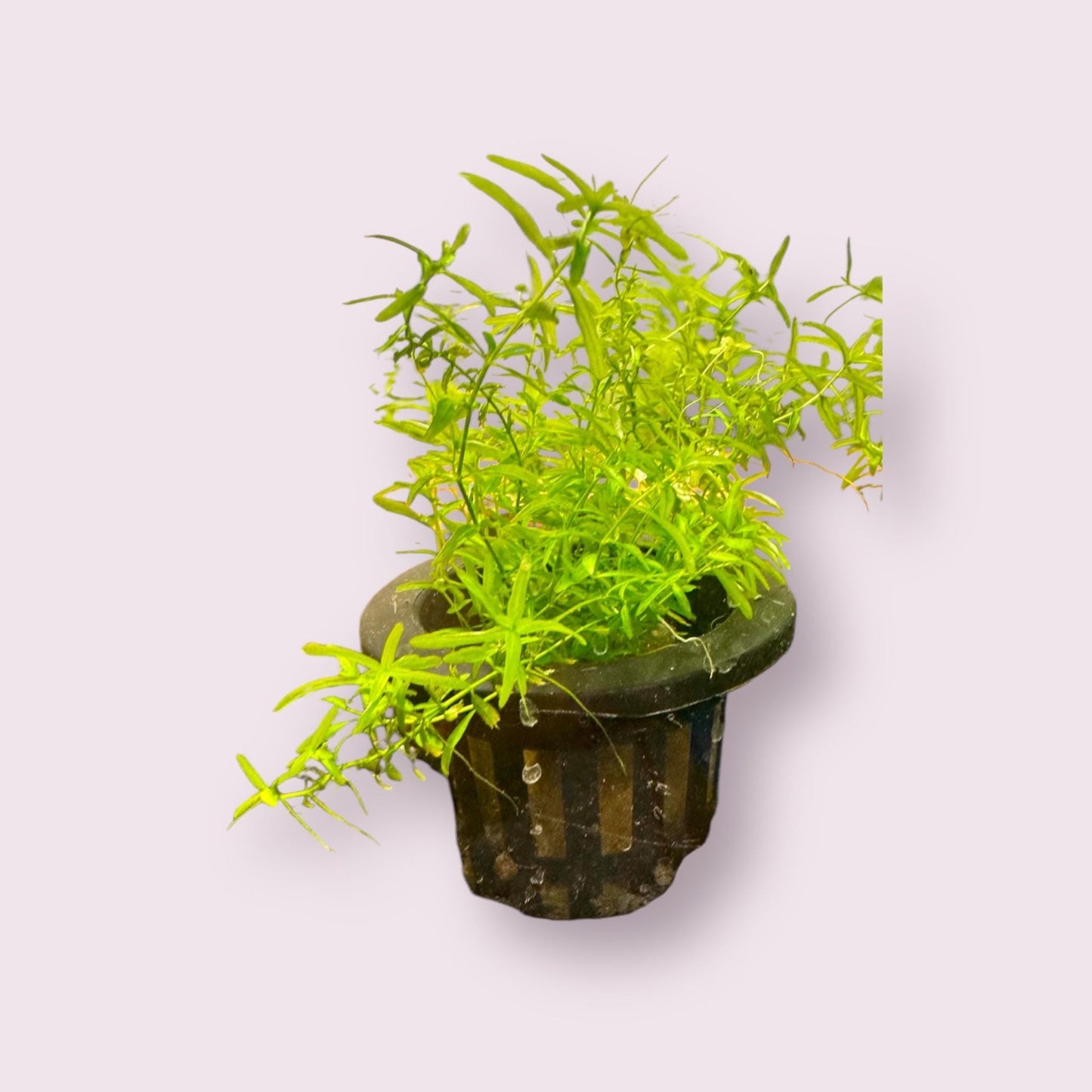
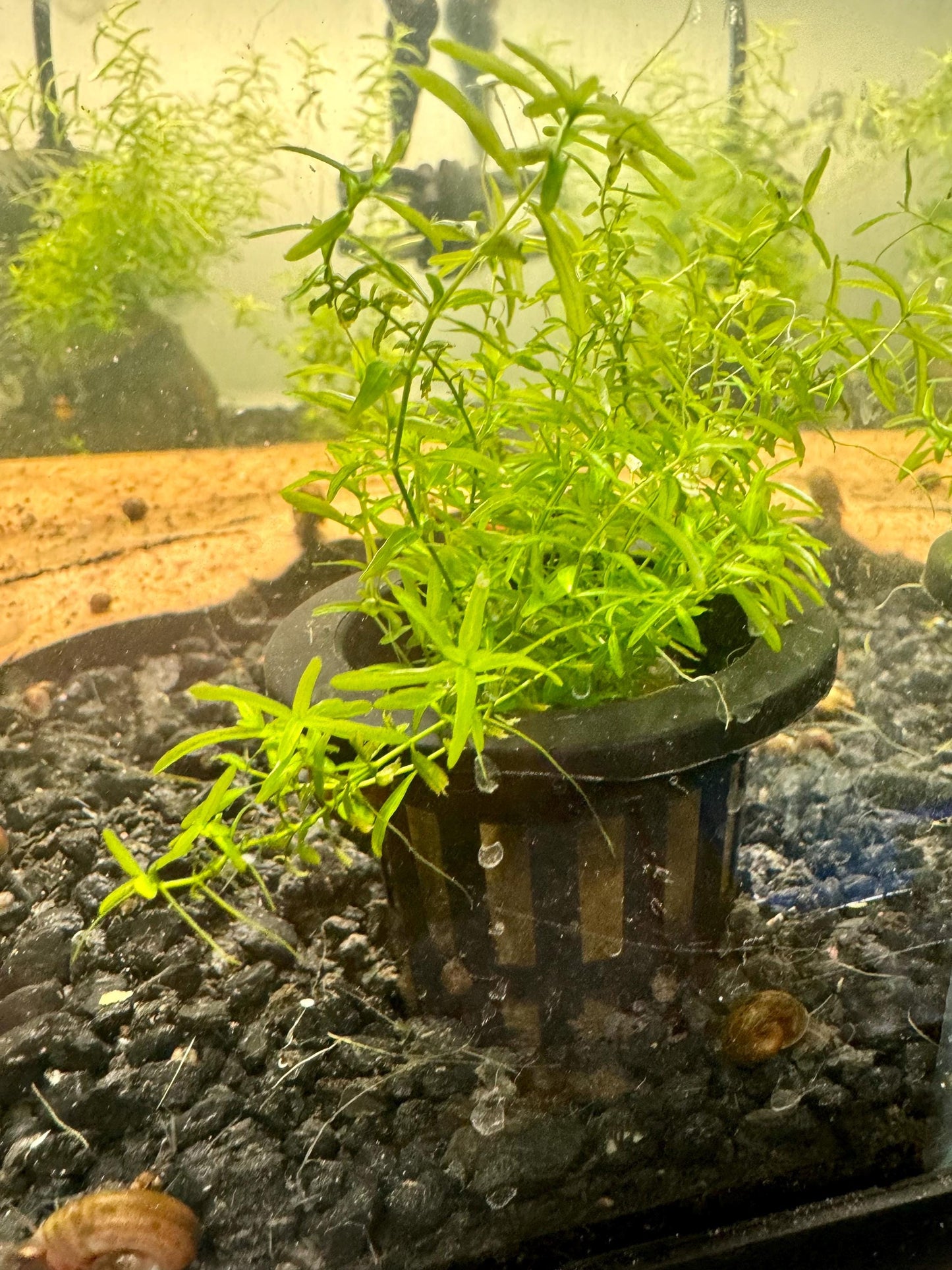
i received a great, healthy little bundle of pearlweed and it's doing great in my tank. super transparent seller and great shipping.
